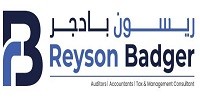How Auditing Help Companies Facing Financial Challenges

How Auditing Can Help the Companies Facing Financial Challenges in Dubai
Auditing financial statements is a key part of financial management, and it helps ensure an organization’s financial performance is accurate and reliable. It also helps management and investors make decisions about the organization’s future.
However, auditing financial statements cannot predict the future with certainty. As such, there is always a risk of financial misstatement, which could have serious consequences if not detected early enough. Some of the financial challenges organizations facing today are increasing competition and new technologies. As these factors change, so too does the risk that financial statements may be unreliable or obsolete by the time they are finalized.
In this blog, we will discuss how auditing can help address these financial issues and what companies can do to implement best practices when auditing their financial statements.
Top financial challenges companies facing in Dubai
With the increasing financial burden of the rising cost of living, Dubai companies are finding it difficult to maintain profitability and sustainability. Auditing has started playing an essential role in protecting financial statements from distortion. In Dubai, auditors must possess a high level of technical expertise due to the increasing complexity of financial transactions.
It is also important for them to have sufficient experience in auditing the financial statements of companies operating in the region. The ARM committee has been mandated with the responsibility of maintaining internal control over the risk management structure in the company. This helps ensure compliance with applicable laws and regulations.
Potential risks associated with these challenges
- Financial challenges underlining Dubai companies- The financial market of the UAE is growing at a rapid pace. This has resulted in a host of factors that are impacting financial institutions, financial markets as well as firms such as banks, insurance companies, and stock exchanges. As a result, the financial sector has become increasingly competitive. Such factors have further led to an increase in financial risks for businesses operating in the country.
- The already congested Dubai market can potentially put companies on the verge of collapse. It has been observed that many firms find it difficult to operate profitably despite having a capable business model and sufficient capital for operations.
- Lack of internal control in the U.A.E can contribute to the failure of financial organizations/companies. It is imperative for businesses operating in the country to have strong internal controls in place to identify risks, monitor management's performance, detect and prevent fraud, and protect assets from theft or loss.
- Risk management strategies have been implemented to help regulate companies’ financial operations. Organizations have been using risk assessment tools and frameworks to understand their financial risks and build appropriate risk mitigation strategies accordingly. Besides, businesses are also taking precautions such as diversifying their business operations and using external funding sources when necessary.
- Diversification of the economy can potentially lead to a restricted business operation due to the over-concentration of investments in certain sectors, which may limit business growth.
Financial challenges are not limited only to corporate entities but are also faced by banks, insurance companies, and stock exchanges due to increased risks, volatile investment climate globally, and regulatory uncertainty worldwide.
How auditing can help address these financial issues
Internal auditing is an essential part of every business' financial governance framework. Auditing is a third-party review and verification of financial statements to ensure they are true and accurate. The business audit assures that financial statements are reliable, fair, and by Generally Accepted Accounting Principles (GAAP). Auditing also helps businesses create better accounting systems by verifying transactions and vouchers.
The auditor's role goes beyond auditing the financial statements alone. Auditing organizations’ internal control framework, processes, and policies can help them strengthen their operations. Internal auditing can help organizations identify mistakes and strengthen their internal controls. On top of that, auditors provide valuable insights for improving processes and operations.
What can be done to ensure a successful audit?
Auditing is the process of evaluating financial information and reporting to ensure that it is accurate, fair, and complete. To perform an audit effectively, auditors need to have a thorough grasp of financial accounting and reporting principles as well as know how to apply those principles in practice. However, auditors are not infallible and their job is not to find every error but to help organizations improve the quality of their financial reporting.
That's why auditors should conduct internal audits regularly to ensure they are following established processes and standards. The internal audit role includes performing financial due diligence on new acquisitions, reviewing annual financial statements, and testing controls for effectiveness. External auditors provide a necessary check on external financial reports by conducting reviews of financial statements prepared by external entities such as accountants or tax authorities. Besides, audit firms should keep abreast with the latest financial and regulatory developments in their respective fields to provide accurate and relevant services.
What are the best practices to implement when auditing a company?
Auditing is the process of evaluating, inspecting, and testing financial information to ensure its validity and accuracy. Auditing auditors should review the company's financial statements to ensure accuracy and consistency with past performance. They should also examine the books to determine if they are balanced. Audits should also evaluate the financial control systems, budgeting, spending, and investing of the company. This would help businesses to identify potential problems and provide a detailed understanding of their finances. This is essential to ensuring compliance with regulations and keeping track of their finances. Regular audits will help businesses identify any issues and keep track of their finances more closely.
Conclusion
As Dubai continues to experience growth, financial challenges will increase for companies in the region. However, auditing can help organizations meet these financial challenges head-on and ensure they remain compliant with regulations. To succeed in this competitive environment, businesses must implement best practices when it comes to auditing. Additionally, they should educate employees about financial literacy and highlight financial training as a solution to combat financial illiteracy among employees. By educating individuals on financial matters, companies can foster a culture of financial awareness that is vital for their long-term success.

